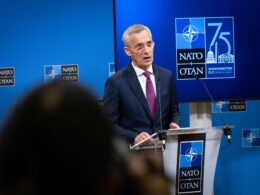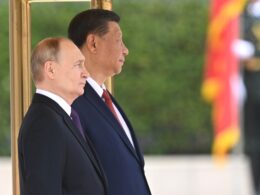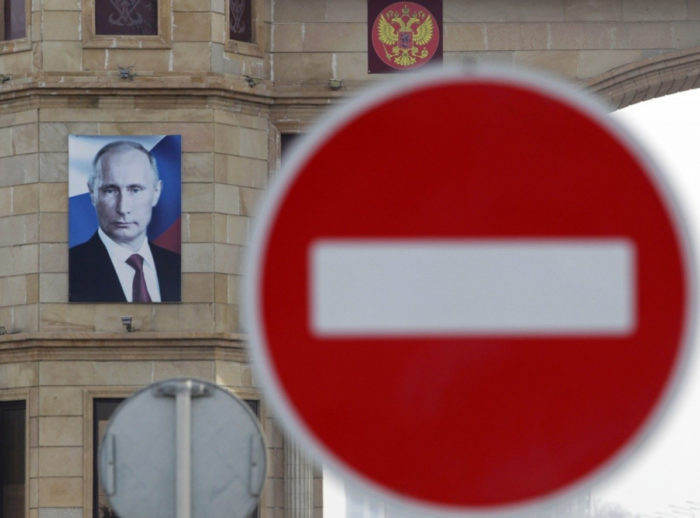Amid a US military buildup in the Caribbean, Venezuelan President Nicolás Maduro has requested military assistance from Russia, China, and Iran, according to internal US government documents obtained by The Washington Post.
The requests to Moscow were made in a letter intended for Russian President Vladimir Putin, to be delivered by a senior aide during a visit to the Russian capital this month, the documents show.
Maduro asked Russia to help restore several Russian Sukhoi Su-30MK2 aircraft previously purchased by Venezuela, overhaul eight engines and five radars, and acquire 14 sets of what were believed to be Russian missiles. He also requested unspecified "logistical support" and a "medium-term financing plan of three years" through Rostec, the Russian state-owned defense conglomerate, though no specific amount was mentioned.
In the letter, Maduro emphasized that Russian-made Sukhoi fighters "represented the most important deterrent the Venezuelan National Government had when facing the threat of war," according to the US records.
The Venezuelan president also composed a letter to Chinese President Xi Jinping seeking "expanded military cooperation" between their two countries to counter "the escalation between the US and Venezuela." In that missive, he asked the Chinese government to expedite Chinese companies' production of radar detection systems.
"In the missive, Maduro emphasized the seriousness of perceived US aggression in the Caribbean, framing US military action against Venezuela as action against China due to their shared ideology," the US documents state.
Transport Minister Ramón Celestino Velásquez recently coordinated a shipment of military equipment and drones from Iran while planning a visit to that country, the documents say. He told an Iranian official that Venezuela was in need of "passive detection equipment," "GPS scramblers" and "almost certainly drones with 1,000 km [600 mile] range," the documents state.
It remains unclear from the documents how Russia, China and Iran responded to these requests.
Russia's restrained response
On 26 October, an Ilyushin Il-76—one of the Russian aircraft sanctioned in 2023 by the United States for participating in the arms trade and transporting mercenaries—arrived in Caracas after a circuitous route over Africa to avoid Western airspace, according to Flightradar24.
The Kremlin declined to comment on the letter, but on the evening of 31 October, the Foreign Ministry said Moscow supports Venezuela "in defending its national sovereignty" and stands "ready to respond appropriately to the requests of our partners in light of emerging threats."
Moscow also recently ratified a new strategic treaty with Caracas.
However, the official messaging from Moscow on the Trump administration's actions against Venezuela has been relatively restrained. In early October, Russian Foreign Minister Sergei Lavrov "expressed serious concern over the increasing escalation of Washington's activities in the Caribbean Sea" in a call with his Venezuelan counterpart.
On 29 October, Kremlin spokesman Dmitry Peskov said that Moscow "respects Venezuela's sovereignty" and believes the issue should be resolved in accordance with "international law"—a common talking point the Kremlin often employs to sidestep sensitive geopolitical questions.
US military pressure
The US military buildup in the Caribbean is presenting perhaps the greatest challenge to Maduro since he took over the country's leadership in 2013.
More than a dozen US strikes on alleged drug traffickers, largely departing from Venezuelan shores, have killed at least 61 people since September. The administration has not presented proof that the ships were involved in drug trafficking, and Maduro has denied they were.
The USS Gerald Ford, the Navy's heaviest and most modern aircraft carrier, has been dispatched to the region.
"The fact that we've moved over 10 percent of our naval assets to the Caribbean is already a win, in some regards, for Putin," said James Story, a former US ambassador to Venezuela and founding partner of Global Frontier Advisors. "Our renewed interest in all things Western Hemisphere divides our attention on Ukraine. And that's a good thing for Putin."
Russia's shifting priorities
Defense analysts say Moscow has shifted some of its key Latin American listening posts from Venezuela to Nicaragua, where pro-Russian authoritarian President Daniel Ortega has solidified his grip on power.
"The reality is that Russia has been relatively quiet on Venezuela," said Douglas Farah, president of the national security consulting firm IBI Consultants. "And they've spent very little political capital defending Maduro."
Mired in a war in Ukraine and eyeing closer cooperation with other Latin American partners, Moscow has gradually curtailed its interest in Venezuela in recent years with little sign of a surge in support because of the current crisis.
With its forces tied up in Ukraine, Russia is also less capable of assisting a friendly leader across the Atlantic, even if it wanted to.
"Would Russia do anything [in case of a US operation]? I think it is not in the immediate plans of the Russian authorities," said Victor Jeifets, editor in chief of Russian scientific journal "Latin America."
The cooperation treaty with Venezuela stops short of a real military pledge. Jeifets said the treaty, which covers topics including money laundering and nuclear proliferation, is vague on military cooperation, simply suggesting that the two parties "improve ties in the field of defense."
Questionable military capabilities
Analysts and officials familiar with the Venezuelan military say much of what was purchased from Russia is nonoperational or outdated. One former Venezuelan military official, who spoke on the condition of anonymity out of fear of reprisals, said that by 2018, Venezuela had fewer than five Russian-built Sukhois operating.
"Chávez bought, or Russia sold Venezuela, pure junk," he said.
Maduro this month, however, claimed Venezuela had deployed 5,000 Russian-made Igla-S portable surface-to-air missiles nationwide.
What Russia stands to lose
The political and economic ties between Russia and Venezuela date to Hugo Chavez following his rise to power in 1999. High-profile projects between the two countries continue to roll out, including a Kalashnikov munitions factory that opened in July in the Venezuelan state of Aragua, about 20 years after it was pledged. Moscow also has exploration rights for potentially billions of dollars in untapped natural gas and oil reserves.
Russian state companies have direct investments in three Venezuelan joint ventures that produce 107,000 barrels of crude per day, or about 11 percent of Venezuela's total current production and generate approximately $67 million a month, said Francisco Monaldi, director of the Latin American Energy Program at Rice University.
Russia is still a major player in Venezuelan oil, a thick sludgy crude product requiring substantial processing. The Russians provide essential inputs for processing that crude as well as supplies of gasoline to keep the industry running.
A regime change in Venezuela would be a major blow to Moscow, potentially representing the loss of a major ally while significantly weakening another, Cuba—an even longer-standing ally of Moscow's whose intelligence community is closely intertwined with Maduro's Venezuela.





